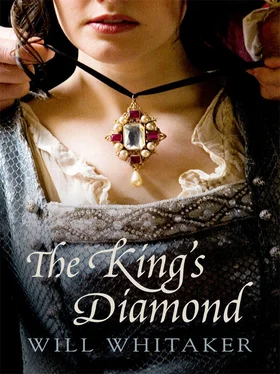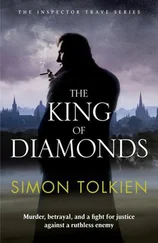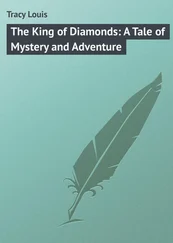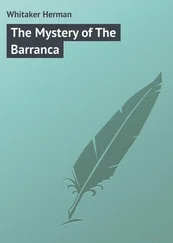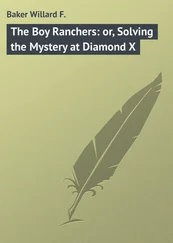Further off into the hills are the older mines. Some of these were opened two thousand years ago; now for the most part they are dead, empty and haunted. Up here, the diamonds grow in a soft red rock that crumbles easily under the pick. It is a fertile rock, a legend among those who love jewels. The Old Rock of Golconda. Few stones remain. But there are still miners who work these veins, who risk the demons that are said to live here, and the frequent falling-in of the ancient tunnels riddling the hills. For these are the finest diamonds in the world.
Early in the year 1484, in the reign of the Sultan Mahmud Shah, two men walked down out of the hills and into the town square of Raolconda. They were dirty, dressed only in ragged loincloths, and in their eyes was the mad light of those who had lived too long with death and despair. They crossed to where the diamond dealers squatted in the shade with their weights and scales and bags of gold at their sides. Only here, in the kindlier green light beneath the banyan trees, could the quality of the stones be judged. The men sat down before the dealers; one of them opened a bundle and with reverence displayed a diamond. It was a pearl-smooth stone almost the size of a hazelnut, with a white flaw reaching down into it like a hand into water. Three miners had already lost their lives, extending the abandoned tunnel into the hillside. But the two who remained had gone on. They had read the signs in the rock, the brightening in its colour, and the juice that oozed from its fissures like blood. They knew they were approaching their reward.
The merchants leant forward. It was a rarity, this: a stone of the Old Rock of such a size. Their scales proclaimed it at twenty-two mañjariyañ and a half: or thirty-seven carats and three grains in the system used in the West. They muttered together, bidding and outbidding one another. Then they looked back at the stone. It was a Gujarati dealer who took it up, of the trading house of Harshadbhai. He counted out two hundred golden pagodas, about four hundred Venetian ducats in the currency of Europe. The miners took their gold and went back into the hills. The light of greed burned brighter in their eyes than ever. No fear of demons or collapsing tunnels could hold them back now. They would penetrate deeper into the Old Rock, and deeper. Within three months, both of them would be dead.
With a stone such as this in his hands, the Gujarati itched for the markets of Surat, where Arabs, Turks and even Portuguese jostled, greedy for the treasures of India. He set off west in a caravan of twenty other merchants, climbing from the plain up into the moist mountain forests, thick with laurel, cinnamon and sandalwood. Six days into the wilderness, brigands surrounded them. His companions agreed on surrender. They would lose their goods; but there would be other ventures. At least they would have their lives. In the past, Harshadbhai would have thought likewise. But he was not to be parted from that diamond. Just as the senior merchant stepped out from among the pack mules, his arms spread in surrender, Harshadbhai put an arrow to his bow and shot down the brigands’ leader. In the fight that followed, three merchants died before the brigands fled. The survivors would no longer keep such a dangerous companion in their band. Harshadbhai travelled on alone.
At Surat, he carried the stone about the usual markets. He was offered three hundred pagodas, then three hundred and fifty; but still he kept it back. He met at last an Arab seafarer named Abu al-Husn, a man who traded between Surat and Aden, carrying ginger, aloes and gems to the West, and to the East horses, rosewater, saltpetre and alum. Al-Husn paused, looked, looked again. He weighed the diamond, and tried to value it. But the manner its cut would take, its final weight and colour, all defied him. The man who bought this stone would put his gold and his peace of mind at hazard. He smiled, and began the process of bargaining. The diamond became his for five hundred pagodas. In the days that followed, making westwards across the Arabian Sea, al-Husn took his new possession out repeatedly, and bragged to the other seafarers of the golden profits he would make when he sold it in Aden; how he would accept not less than a thousand dinars, a good sixty per cent more than he had paid. Every night, as the ship rocked in the swells, he played at dice. Gradually he lost every item of trade he had with him, until he had only the diamond. He turned it in his hand so that that curious gleam struck off the flaw like some signal of warning. Then he set it down with care on the table. ‘This, against all the rest.’ The other men nodded grimly. The diamond, opaque once more, lay on the table among rubies and sapphires, mounds of gold coins and notes of promise for this cargo or that down in the holds. Hazard was the game; a Turk named Ibrahim shook back his long embroidered sleeves and threw first, a seven. This was the strongest throw he could have made. Al-Husn answered it with a four. Now he must throw, and throw again. If he could repeat his four, known as the chance, he would win. But if he repeated his enemy’s seven first, the main, he would lose. The odds were bad. He broke into a sweat. Unlucky twelves took two of the players out; another threw a six and stayed in, with better chances than al-Husn. All the time the diamond gazed at him like a cold and lazy eye. His hands shook as he made the next throw: four and three, making seven, the main, and the destruction of all his hopes.
He sprang to his feet and took the Turk by the neck. He had cheated, changed dice somehow when he shook out his sleeve. Gems and coins went flying. But the Turk had already solved the argument. The curved blade of his dagger slipped between al-Husn’s ribs. He fell, and as his eyes misted over, his last sight was of the diamond, which opened itself briefly, rolling in the ship’s motion, and favoured him with a last rose-pink gleam from its depths.
Some weeks later the stone landed in Aden, that richest port of all Arabia, where the goods of the East meet those of the West. Ibrahim walked ashore with the diamond concealed in a pouch. He knew nothing of gems. His own trade was in opium, and the dyestuff known as dragon’s blood. But the figure stuck in his mind, one thousand dinars, and he would take no less. For three days he walked the city, before meeting an eastern Yemeni named Ibn Hisham. He was a young man, an adventurer, and his usual trade was in pearls of Ormuz. Diamonds lay a long way outside his line. But when Ibrahim opened his packet for a group of traders, the flash of the early sun caught by chance on the place where the flaw shot down inside the stone, and made it burst into sudden music. Ibn Hisham paid down gladly the thousand dinars demanded, around sixteen hundred ducats. He knew he had in his hands a wonder; and it would take him far from his usual roads. The West was the place to sell gems: Cairo, where the Christians came, hungrily clustering to the edge of their world in search of the luxuries of more civilised climes. His pearls too would sell there for more than in Aden.
It was the season of the hot and sudden winds that blow down from the mountains across the straits; but despite that he set off at once. He passed in safety into the Red Sea, and coasted Abyssinia as far as the port of Locari. From there he struck across the desert. Six days’ waterless journey, with the only signs of life the distant scudding of the ostriches, kicking up trails of dust with their feet. Then, after coming at last to the Nile, twelve days more by boat downstream, travelling by day, by night keeping watch against the desert Arabs who raided at will along the banks. By the time he reached Cairo he was longing for the tranquil dawns of Ormuz and the sight of the pearl fishers coming in to the shore. For all the diamond’s bewitchments, he was in a hurry to be rid of it.
Читать дальше
